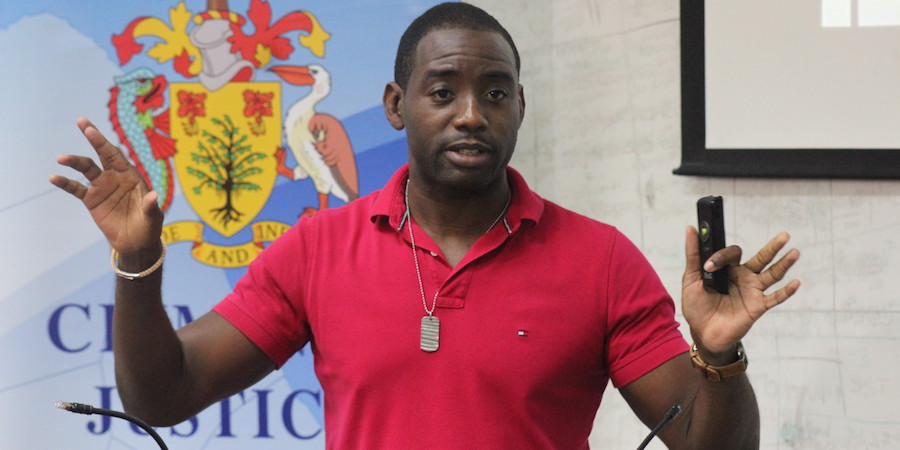Disclaimer: The views and opinions expressed by the author(s) do not represent the official position of Barbados TODAY.
by Ian Marshall
I was recently listening to and reading what some of our “leaders” were putting forward in relation to the recent spate of deadly shootings occurring daily in Barbados.
As I observed, I was overcome with a sense of embarrassment as I could not believe that this was what our representatives were advancing in the name of the people as “leadership”.
These representatives of the people are trying to assure Black people and others that we remain safe because a “small number” of young Black men are killing each other. Does this make sense to you?
Are not these young Black men our sons and some of their targets our daughters? Every killing affects an individual, a family, a community, a workplace, a society, an economy. We are all scarred and traumatised by this fratricidal violence.
Indeed, Professsor Dwayne Devonish in the Sunday Sun newspaper article of September 4, 2022, opined: “While I agree that a number of these crimes seem to be retaliatory in nature and targeted (to specific people), I do not believe that other members of the public are safe and secure and should not worry.”
Devonish, like most right-thinking Barbadians, further postulated that “There is a myriad of psychological and social injuries facing our people ranging from increasing anxiety and fears among members of affected communities and even the wider public, heightened frustrations and aggression being expressed against the perpetrators and the Police and Government; …to actual intentions and actions of people seeking to move out of the country.”
Director of the Criminal Justice Research and Planning Unit, Cheryl Willoughby, not too long ago on August 14,2022 in the Sunday Sun newspaper, pointed out that the powers that be were too slow in the implementation of research findings from departments such as hers, which is necessary to help stem the upsurge of crime in Barbados.
Willoughby went on to say that: “What I have found is that we have all this information that we would have collected over the years. We have pretty much looked at crime using the health model where (like a doctor) we would have evaluated, diagnosed and prescribed,” she told the Sunday Sun.
“This is the same way we need to treat crime right now. I think that is the direction my department has been steered into, where we are using statistics, we are using research to diagnose the problem, make recommendations on how to respond to the problem. But having made those recommendations, you need others to say, ‘Let us give the patient the necessary treatment’ and that is where implementation comes in.”
Moreover, Teachers in Barbados who are well placed to “evaluate, diagnose and prescribe,” long before these troubled youth reach the attention of criminologists, police and the courts, have, like Cheryl Willoughby, been begging and pleading for our sluggish, indifferent leaders to implement policies where they are needed most.
They have referred to counsellors, psychologists, social workers and requisite staffing and legislative clout at valuable institutions like the Child Care Board. But what do they get instead but excuses and deafening silence. Had this been done eons ago many of these youth who have died, may have been saved.
Relatedly, we all know that crime festers in resource deprived communities and among such people. One of these such resources among Black Barbadians is land. I am unsure as to whether remediation of landlessness was included in the recommendations of the research, but it remains a vital consideration.
Hilary Beckles in his book Great House Rules: Landlesss Emancipation and Workers’ Protest in Barbados 1838-1938 tells us that “… land ownership was the basis of economic independence, social status, cultural rootedness and empowerment.” I say it still is and contend that landlessness is a significant contributing factor for many, who have been trapped in a vicious cycle of intra and inter-generational poverty and crime, but that is another story for another time.
In conclusion, one is forced to wonder if the victims were of another racial persuasion, if the “leaders” would have reacted the way they have? Or would they be trying to “move the earth to please” knowing that the international media would be breathing down their necks?
What is the present course of action and the response by our middle-class leaders of whatever persuasion saying to the average Black Barbadian?
How can it now be said that the solution is not an immediate one, when the diagnosis and solutions were there for many years but were ignored? How can calls now be made for Barbadians of all backgrounds to work against this scourge, when, according to Professor Devonish, there is a “pandemic of stigma” faced by certain people and communities and fed, as seen by our middle class “leaders” recently? Our leaders have to truly lead. It is not good enough to mouth platitudes while the blood of Black people is shed daily, and certain groups profit from their demise.
Certainly, this is definitely not who we are.
This column was offered as a Letter to the Editor.




